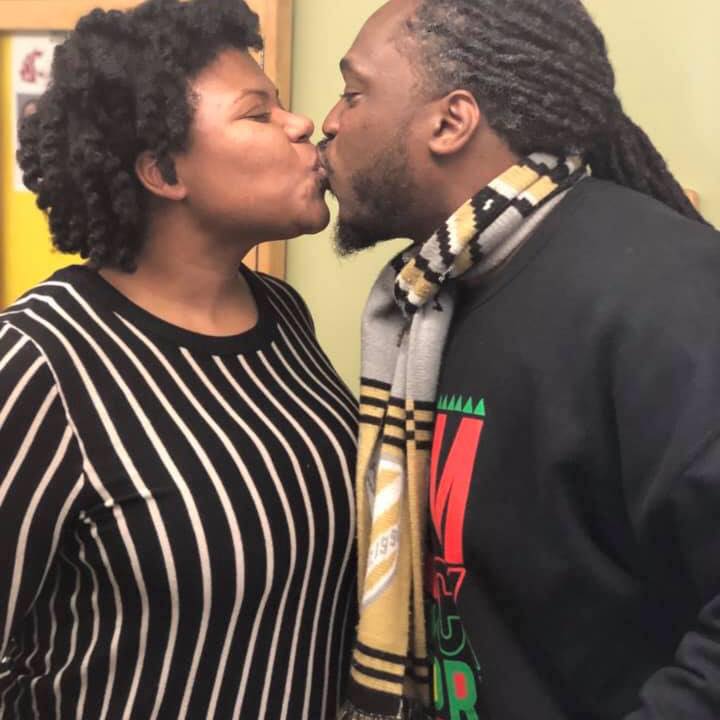Thriving In Unfamiliar Places
Keys For Thriving In Unfamiliar Environments and Circumstances
Curator's Note:This essay introduces Dr. Sydney Freeman Jr. Sydney is a colleague of mine in our Adult, Organizational Learning and Leadership Program at the University of Idaho. I have learned much from Sydney and am so grateful that I have the opportunity to work with him every week. He is a busy and well-published writer and we are fortunate to have him choose Profound Living for this essay.

I am often asked by many people of various backgrounds; how do I make it out here in rural Idaho? Especially when they learn that I am originally from New Jersey and lived my prior 12 adult years in Alabama attending and working at Historically Black Colleges and Universities. I have been thinking a lot about this over the last year as people are looking for keys to thrive in unfamiliar environments and circumstances.
I think that people are particularly intrigued that I present myself authentically and unapologetically Black. And I have a strong commitment to celebrating my cultural heritage. I have bucked conventional wisdom, as many emerging African Americans are told you will be unsuccessful if you come off too Black. However, I have identified three keys based on my own experience that have allowed me to thrive in Idaho and other unfamiliar spaces. The three keys are:
1. Knowing Who you are
2. Knowing Whose you are
3. Knowing Who you want to become
So, the first key is knowing who you are. When I was in middle school, my principal Mrs. Sharon Vines Howard took my class to Princeton University where we observed a lecture from an African American Male Scholar. Part way through his presentation he made a joke about his intelligence, something to the effect that he was not the smartest person in the room. My principal leaned over to me and told me to never do that. Never act or feel that you do not belong among great minds. At that time, I did not know I would become an academic, but I have carried that advice throughout my career. I am humbled that I’ve had the opportunity to speak at places such as Harvard University twice and Oxford University in the UK and each time I was one of the youngest speakers and often felt uncomfortable and intimidated because I had not attended similar prestigious institutions. But I have been inspired by individuals such as Maggie Kuhn, a human rights activist, who once said:
“Leave safety behind. Put your body on the line. Stand before the people you fear and speak your mind--even if your voice shakes. When you least expect it, someone may actually listen to what you have to say. Well-aimed slingshots can topple giants.”
Many of us if not all of us are now confined to our homes because of the COVID-19 pandemic. This is a great time to reflect and get in touch with who we are. For the last three weeks I have taken up long distance walking in the mornings. This has allowed me personal time to think about who I am and who I want to become. I’ve become even more comfortable with myself. I know my strengths and know my limitations. I am comfortable acknowledging that I don’t know something. And I am not afraid to ask so I have a better understanding of what I don’t know. I believe people are drawn to confident and self-assured people. As long as you are not arrogant you actually are able to draw people to you.
The second key is knowing whose you are. When my parents came to visit me in Idaho for the first time, one of the first things I did was take my parents to meet my supervisors. This was strategic as I wanted to signal to my colleagues and bosses that I had people who loved and supported me. I am also a devout Christian and I am firmly grounded in my faith. This allows me to successfully interact with people who may have ideological, political, and social differences than me with confidence. Because I am clear about who has my back.
Strategic questions you should ask yourself when discovering whose you are can be: Who really loves and cares about me? Who are my real friends? I have now come up with my own personal test regarding who my true friends are. It is particularly difficult initially when you are in an unfamiliar space to discern who are really your true friends. It can be particularly challenging when you are in a position of influence. Here are the two questions I ask myself to weed out if they’re my friend versus just a regular associate.
- This first one I got from my mentor Dr. Nat Irvin of the University of Louisville. He once said if they haven’t invited you to their home, they’re not your friends.
- If you call and they don’t respond within 24 to 48 hours. They’re not your friends.
It’s important to trust your gut. Know what you will and will not take. The great poet Dr. Maya Angelou said, “When people tell you who they are believe them”. And because you know whose you are, you are able to discern if you need to metaphorically “move from a table that you are not wanted or remove someone that does not respect your table”. And by that, I mean you require that you are respected. Wintley Phipps, a popular gospel singer, says it like this, "Go where you're celebrated and not where you're tolerated”.
The third and last key is knowing who you want to become. My professional aspirations in the last few years have been to be a high performing faculty member and eventually an administrator. Any modicum of success I have had so far in my life and career has been due in part to having a laser focus on my vision. I would posit that remaining disciplined in achieving your vision is a major key to success. In my case, I have been clear about my values (what I believe in) and my value (my self-worth and what I can command professionally). And I have been able to align myself with opportunities that reinforce those values.
Understanding who I am, whose I am, and what I want to become has sustained me.
So, when you go into unfamiliar environments there will be people that may be skeptical of you, may misunderstand you, and may be downright mean to you. But I have learned that if I continue to know who I am, whose I am, and focus on what I want to become nobody can stop me. And if you take the same approach, I believe that you can thrive in unfamiliar spaces too.
Sydney's Bio:
“Sydney is a person who loves God and people. His greatest and most precious blessing has been to share life with his wife and best friend, Lynda. They both live in the small rural college town of Moscow, Idaho where they share in preparing leaders for service in a variety of vocations. His greatest joy is being the big brother to his now adult siblings who are beginning their college and professional journeys. When not writing or discussing educational, sociological, philosophical ideas, you can often find him walking and taking in the majestic beauty of Idaho’s and Washington’s Palouse mountains and hills.”











